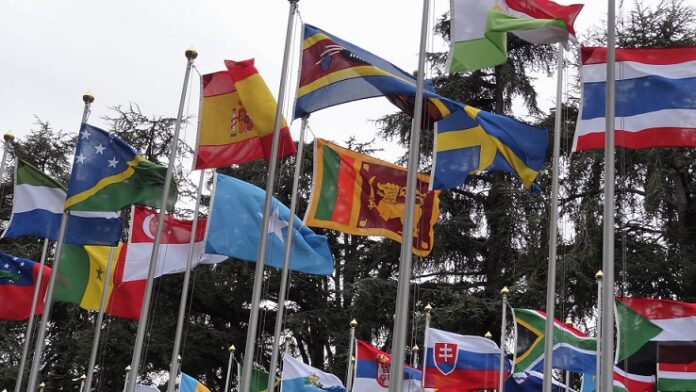The United Kingdom and Canada have informed the Sri Lankan government that they intend to table a new resolution on Sri Lanka at the upcoming 60th session of the UN Human Rights Council (UNHRC) next month. However, Sri Lankan officials anticipate that the language of the resolution will be more moderate compared to previous ones.
This development has been communicated to the government through informal channels.
Last April Sri Lankan government refused to meet a visiting diplomat from Geneva UK embassy. His request for a meeting with the FM was turned down.
According to informed sources, the Sri Lankan government does not intend to call for a division, allowing the resolution to pass without a vote. However, Foreign Minister Vijitha Herath is expected to deliver a statement expressing firm opposition to the resolution.
With the United States—previously a co-sponsor of resolutions on Sri Lanka—no longer a member of the UNHRC, the composition of the core group backing the resolution is expected to shift. According to a senior government source, countries such as Malawi, Montenegro, and North Macedonia, which were part of the earlier core group alongside the UK, US, and Canada, may not participate this time.
High Commissioner’s Report and Chemmani Site
UN Human Rights High Commissioner Volker Türk, who visited Sri Lanka in June, is scheduled to present his report titled “Situation of Human Rights in Sri Lanka” on September 8, the opening day of the session. His visit included a stop at the Chemmani mass grave site, which is expected to feature prominently in the report.
Sri Lanka’s Response and Domestic Measures
Foreign Minister Vijitha Herath will represent Sri Lanka at the Geneva sessions and deliver the government’s official statement.
Speaking to the Sunday Times, Mr. Herath noted that since the new administration assumed office last September, there has been a noticeable softening in the tone of UNHRC resolutions and submissions concerning Sri Lanka. He emphasized that the government has taken steps to strengthen domestic accountability mechanisms and ensure they remain free from political influence.
One such initiative is the proposed establishment of an Independent Prosecutor’s Office, a key pledge in the National People’s Power (NPP) election manifesto. “We are committed to setting up the Independent Prosecutor’s Office. The legal framework for this will be developed in the coming months,” the minister said.
Chemmani Inquiry and Judicial Independence
Addressing international calls for an inquiry into the Chemmani mass grave site, Mr. Herath clarified that the matter falls under the jurisdiction of the judiciary and is not subject to government interference. He cited similar cases in Mannar and Matale, where the government facilitated exhumations and investigations, underscoring its commitment to transparency and due process.
With the inputs from the Sunday Times.
